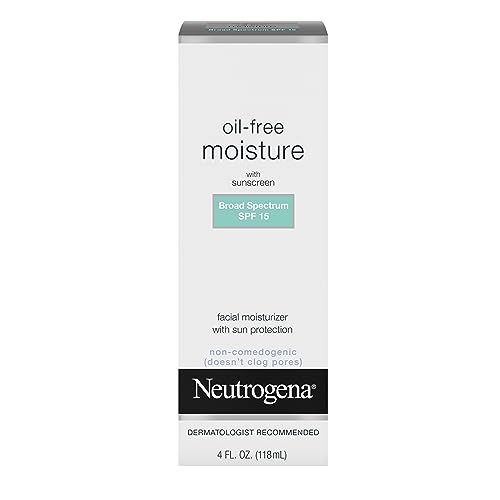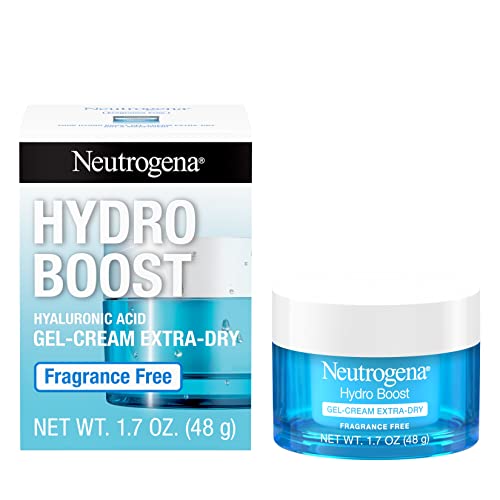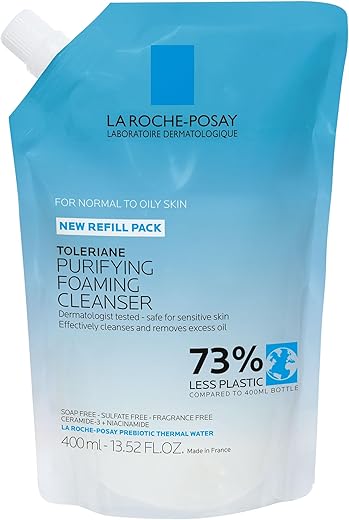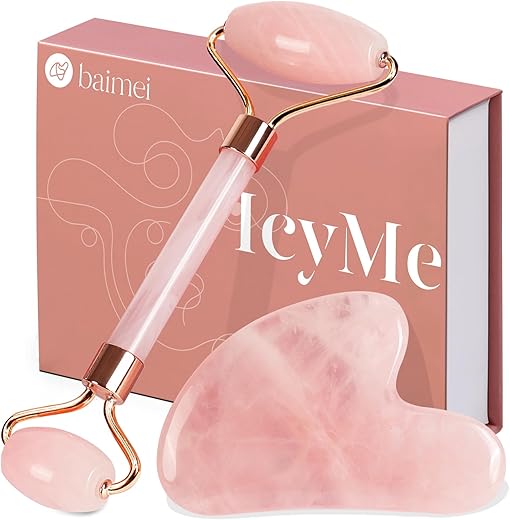
Can facial moisturizer with SPF be used on the body as well?
When it comes to skincare, the struggle of finding the perfect products for our face and body is real. We all want to protect our skin from the harmful effects of the sun, but the question lingers: can we get away with using the same facial moisturizer with SPF on our body as well? In this blog post, we dive deep into this common dilemma, empathizing with those who yearn for simplicity in their skincare routines. Join us as we explore whether or not facial moisturizer with SPF can do double duty and keep your entire body protected.
Top-rated facial moisturizers with SPF for ultimate sun protection and healthy, hydrated skin






What is facial moisturizer with SPF?
Facial moisturizer with SPF is a skincare product that combines the benefits of a moisturizer and sun protection into one convenient formula. It is designed to hydrate and nourish the skin while also shielding it from harmful UV rays.

The Importance of Sun Protection
Sun protection is crucial for maintaining healthy skin and preventing premature aging. The sun emits harmful ultraviolet (UV) rays that can cause damage to the skin, leading to sunburn, wrinkles, dark spots, and even skin cancer. Regular exposure to these rays without proper protection can accelerate the aging process and increase the risk of skin cancer.
Benefits of Using a Moisturizer with SPF
Using a facial moisturizer with SPF offers several benefits that make it an essential part of any skincare routine:
- Convenience: A facial moisturizer with SPF combines two essential steps into one, saving time and simplifying your skincare routine.
- Hydration: Moisturizers with SPF not only provide sun protection but also hydrate the skin. They contain ingredients like hyaluronic acid and glycerin that help to replenish and lock in moisture, keeping the skin soft and supple.
- Broad Spectrum Protection: Look for a moisturizer with SPF that offers broad-spectrum protection. This means it protects against both UVA and UVB rays. UVA rays penetrate deep into the skin and are responsible for premature aging, while UVB rays primarily cause sunburns. By using a broad-spectrum moisturizer, you shield your skin from both types of harmful rays.
- Prevents Photoaging: Photoaging refers to the premature aging of the skin caused by sun exposure. It can manifest as wrinkles, fine lines, and uneven skin tone. Using a moisturizer with SPF helps prevent photoaging and keeps your skin looking youthful.
- Reduces Risk of Skin Cancer: Sun exposure is a leading cause of skin cancer. By applying a moisturizer with SPF daily, you create a barrier between your skin and the harmful UV rays, reducing your risk of developing skin cancer.
How to Choose the Right Moisturizer with SPF
When selecting a facial moisturizer with SPF, consider the following factors:
- SPF Level: Choose a moisturizer with an SPF of at least 30. This level of protection is recommended by dermatologists for daily use.
- Skin Type: Consider your skin type when choosing a moisturizer. If you have dry skin, opt for a moisturizer with a richer texture. If you have oily or acne-prone skin, look for a lightweight, oil-free formula.
- Additional Ingredients: Pay attention to the other ingredients in the moisturizer. Look for antioxidants like vitamin C and E, as they provide additional protection against free radicals and help brighten the skin.
- Allergies and Sensitivities: If you have sensitive skin or allergies, choose a moisturizer that is hypoallergenic and free from potential irritants like fragrances or harsh chemicals.
Differences between facial and body moisturizers
Moisturizers are an essential part of our skincare routine, helping to keep our skin hydrated and nourished. However, not all moisturizers are created equal. Facial and body moisturizers have different formulations and are designed to cater to the specific needs of each area. In this section, we will explore the key differences between facial and body moisturizers, highlighting the importance of using the right product for each area of your skin.



1. Composition and Texture
Facial moisturizers are specially formulated to be lightweight and easily absorbed into the delicate skin of the face. They typically have a thinner consistency and contain a higher concentration of active ingredients that target specific concerns such as fine lines, wrinkles, and acne. On the other hand, body moisturizers tend to have a thicker texture to provide longer-lasting hydration to the larger surface area of the body.
2. Ingredients and Benefits
When it comes to ingredients, facial moisturizers often contain a higher concentration of antioxidants, vitamins, and anti-aging compounds. These ingredients are carefully chosen to address the unique needs of facial skin, such as reducing the appearance of wrinkles, improving elasticity, and protecting against environmental damage. Body moisturizers, on the other hand, focus more on providing intense hydration and soothing dry or irritated skin.
Facial Moisturizer Benefits:
- Lightweight texture for quick absorption
- Targeted ingredients for specific skin concerns
- Anti-aging properties to reduce fine lines and wrinkles
- Protection against environmental damage
- Suitable for sensitive facial skin
Body Moisturizer Benefits:
- Thicker texture for long-lasting hydration
- Soothes dry and irritated skin
- Deeply nourishes and moisturizes the body
- Suitable for all skin types, including sensitive skin
- May contain additional ingredients for fragrance and relaxation
3. Sun Protection
One of the most significant differences between facial and body moisturizers is the inclusion of sun protection. Facial moisturizers often include SPF (Sun Protection Factor) to shield the delicate facial skin from harmful UV rays. SPF is crucial for preventing premature aging, sunspots, and reducing the risk of skin cancer. Body moisturizers, however, rarely contain SPF as they are typically used on areas of the body that are not as exposed to direct sunlight.
4. Targeted Areas of Application
Facial moisturizers are specifically designed for use on the face, neck, and décolletage. These areas are more sensitive and require specialized care to maintain skin health and radiance. Body moisturizers, on the other hand, are intended for use on the rest of the body, including arms, legs, and torso. Their thicker texture and larger packaging make them more suitable for covering larger surface areas.
Can facial moisturizer with SPF be used on the body?
When it comes to sun protection, using a moisturizer with SPF is a great way to keep your skin safe from harmful UV rays. But what about using facial moisturizer with SPF on your body? Is it safe and effective? Let’s explore this topic in more detail.

Factors to Consider
Formulation
The formulation of a facial moisturizer with SPF is specifically designed for the delicate skin on your face. It usually contains ingredients that are lightweight, non-greasy, and easily absorbed. On the other hand, body moisturizers tend to have a thicker consistency to provide long-lasting hydration to the skin. While some facial moisturizers can be used on the body, it’s important to consider the formulation and whether it will suit your needs.
Ingredients
The ingredients in a facial moisturizer with SPF may differ from those found in a body moisturizer. Facial moisturizers often include additional ingredients, such as antioxidants, peptides, or hyaluronic acid, to target specific skin concerns. These ingredients may not be necessary for the body, but they won’t necessarily cause harm either. However, it is important to check the ingredient list for any potential irritants or allergens before using a facial moisturizer on your body.
Skin Sensitivity
The skin on your face is generally more sensitive than the skin on your body. This means that some facial moisturizers may not be suitable for use on the body, especially if you have sensitive skin or are prone to breakouts. It’s always a good idea to do a patch test on a small area of your body before applying a facial moisturizer all over.
Benefits of Using Facial Moisturizer with SPF on the Body
Using a facial moisturizer with SPF on your body can have several benefits:
- Convenience: If you already have a facial moisturizer with SPF that you love, using it on your body can save you the hassle of purchasing a separate body sunscreen.
- Cost-effective: Facial moisturizers with SPF often come in larger sizes than regular sunscreen, making them a more cost-effective option for full-body protection.
- Lightweight coverage: Facial moisturizers with SPF are typically lightweight and non-greasy, making them comfortable to wear on the body without feeling heavy or sticky.
- Additional skincare benefits: Facial moisturizers often contain beneficial ingredients like antioxidants and hydrating agents, which can provide added skincare benefits to the body.
Factors to consider when choosing a moisturizer for the body
When it comes to choosing a moisturizer for your body, it’s important to consider several factors to ensure you find the right product for your skin’s needs. Here are some key factors to keep in mind:



SPF Protection
One of the most important factors to consider when choosing a moisturizer for your body is whether it offers SPF protection. Sun protection is crucial for maintaining the health and appearance of your skin. Look for a moisturizer that provides broad-spectrum SPF coverage to shield your skin from harmful UVA and UVB rays.
Benefits of SPF protection:
- Prevents sunburn and sun damage
- Reduces the risk of skin cancer
- Helps prevent premature aging and wrinkles
Hydration Levels
Another crucial factor to consider is the level of hydration that the moisturizer provides. Different skin types have varying hydration needs, so it’s essential to choose a product that aligns with your skin’s requirements.
Considerations for hydration:
- Dry skin: Look for a moisturizer with rich, emollient ingredients like shea butter or hyaluronic acid to deeply hydrate and nourish dry skin.
- Oily skin: Opt for a lightweight, oil-free moisturizer that balances moisture levels without clogging pores.
- Normal or combination skin: Choose a moisturizer that strikes a balance between hydration and lightweight texture, providing adequate moisture without feeling heavy on the skin.
Fragrance
Fragrance can be a personal preference, but it’s important to consider how your skin may react to certain scents or fragrances in moisturizers. Some fragrances can cause irritation or allergic reactions, especially for those with sensitive skin.
Tips for fragrance selection:
- Unscented or fragrance-free options: These are ideal for individuals with sensitive skin or those prone to allergies.
- Lightly scented options: If you enjoy a pleasant scent, look for moisturizers with light, natural fragrances that are less likely to cause irritation.
Skin Sensitivity
If you have sensitive skin, it’s crucial to choose a moisturizer that is specifically formulated for sensitive skin types. These products are often free from harsh chemicals, dyes, and fragrances that can trigger irritation.
Considerations for sensitive skin:
- Hypoallergenic products: Look for moisturizers labeled as “hypoallergenic,” as they are less likely to cause allergic reactions.
- Patch testing: If you’re uncertain about a particular product, perform a patch test on a small area of your skin to check for any adverse reactions before applying it all over your body.
Additional Considerations
In addition to the factors mentioned above, there are a few other considerations to keep in mind when choosing a moisturizer for your body:
- Texture: Consider the texture of the moisturizer and choose one that feels comfortable on your skin. Some prefer lightweight lotions, while others prefer creamy or thick formulas.
- Ingredients: Read the ingredient list to ensure that there are no potential irritants or allergens that could cause problems for your skin.
- Price: Consider your budget and find a moisturizer that fits within your price range without compromising on quality.
By considering these factors, you can find a moisturizer that meets your skin’s needs and helps to keep it healthy, hydrated, and radiant.
Remember, everyone’s skin is unique, so what works for one person may not work for another. It may take some trial and error to find the perfect moisturizer for your body, but with careful consideration and a bit of research, you can find a product that suits your skin’s needs perfectly.
Final thoughts and recommendations
In conclusion, although it is possible to use facial moisturizer with SPF on the body, it is advisable to use a dedicated moisturizer for the body to cater to its unique requirements. This guarantees sufficient sun protection and hydration for the entire body.

Hey, I’m Ava Wilson—a skincare enthusiast and a certified esthetician. I’m dedicated to sharing my knowledge and empowering others to achieve healthy, glowing skin through simple, effective routines and natural remedies. Join me on this exciting skincare journey, and let’s unlock your skin’s potential for a confident, beautiful you.





